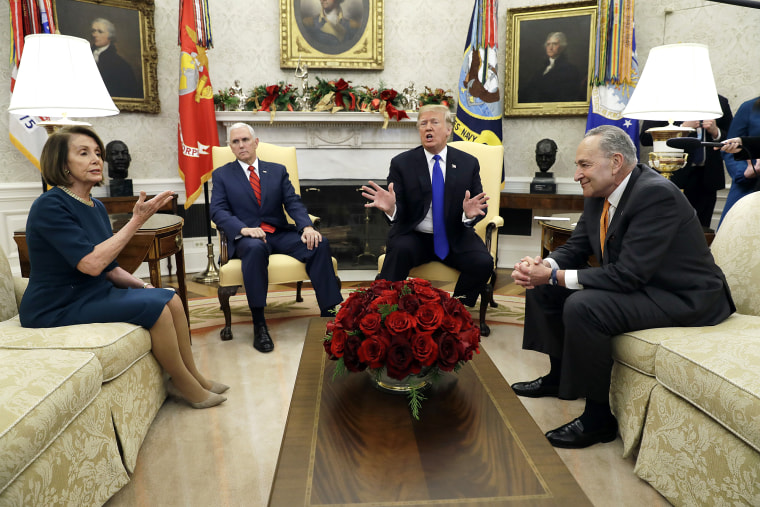In mid-May, House Democrats saw the CARES Act's expiration on the horizon and took steps to stay ahead of the problem. The lower chamber approved an ambitious, $3 trillion aid package, which would extend benefits to struggling families, businesses, and communities through the end of the year.
As we've discussed, Republicans soon after responded with ... very little. In July, Senate Majority Leader Mitch McConnell (R-Ky.) unveiled an alternative, which much of his party disliked, and which was never even brought up for a vote. Donald Trump announced a series of executive actions, which amounted to very little. GOP senators tried and failed to pass a narrow, partisan plan last week, though it was clearly little more than a theatrical effort.
The problem, of course, is that a new economic aid package remains necessary for much of the country. Democratic leaders say they're still eager to approve legislation, which the White House generally refers to as "Phase IV," but the consensus in D.C. is that a deal is unlikely.
It was against this backdrop that the president, who refuses to even try to lead negotiations on the matter, published an unexpected statement yesterday.
President Trump on Wednesday called on congressional Republicans to support a massive economic relief bill with “much higher numbers” and stimulus payments for Americans, abruptly proposing an entirely different plan from what the Senate GOP sought to advance in recent days.
Yesterday morning, Trump published a tweet that condemned Democrats as "heartless" -- a label that made no sense in context, since the Democratic proposal is the most generous -- but simultaneously urged Republicans to approve an aid package with "much higher numbers." This appeared to position the White House against his own party's proposal.
Trump's preferred alternative wasn't, and still isn't, altogether clear. The bipartisan Problem Solvers Caucus in the House, for example, unveiled a $1.5 trillion plan this week. Democratic leaders, meanwhile, already passed a roughly $3 trillion package, but they've also expressed a willingness to accept a $2 trillion plan if Republicans would meet them halfway. (To date, GOP officials have balked at the offer.)
Asked about the $1.5 trillion proposal, Trump told reporters yesterday, "Yeah, I like the larger amount. I’ve said that, you know. Some of the Republicans disagree, but I think I can convince them to go along with it because I like the larger number.... I’d like to see the larger number. Yeah, I would like to see it."
Democratic leaders issued a statement, ignoring the strange "heartless" jab, and celebrating the president's new support for a "larger" proposal.
Politico reported, however, that Senate Republicans were prepared to "brush off" Trump's calls for a bigger coronavirus relief package, "casting doubt on whether there is enough GOP support to move forward with additional economic stimulus measures just seven weeks before Election Day."
So let's take stock. Trump, who won't come to the negotiating table, thinks the Democratic approach is both too generous and "heartless." He stands with Republicans, whose plan he now opposes, and whose arms he intends to twist, getting them closer to the Democratic plan the president says he dislikes.
Congressional Republicans, who still can't pass a plan of their own, seem inclined to ignore the president's lobbying, but still don't agree with one another on the best path forward.
Democrats, meanwhile, -- the only folks in this drama to actually write and pass a plan -- no longer have any idea who, if anyone, to negotiate with.

